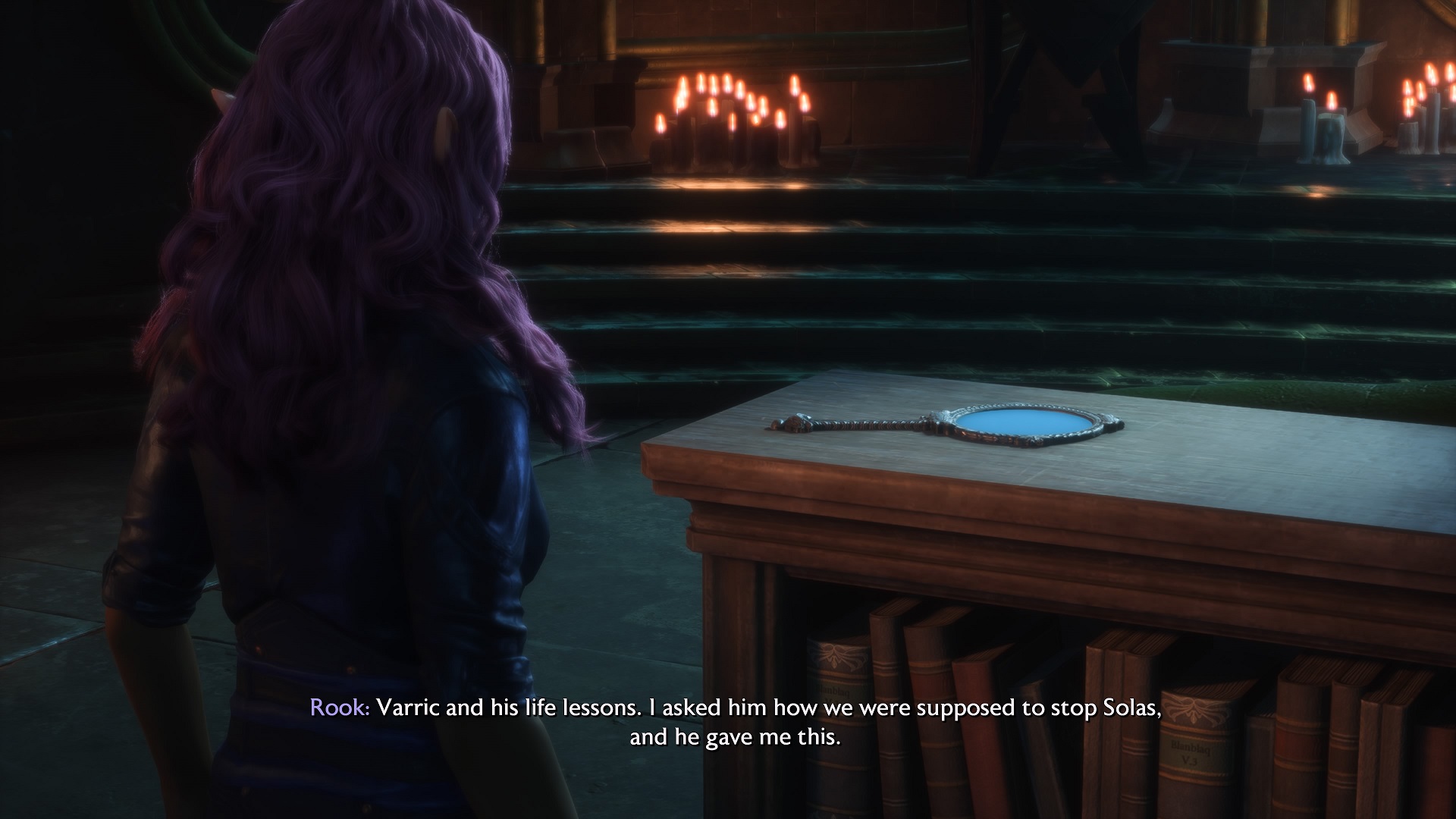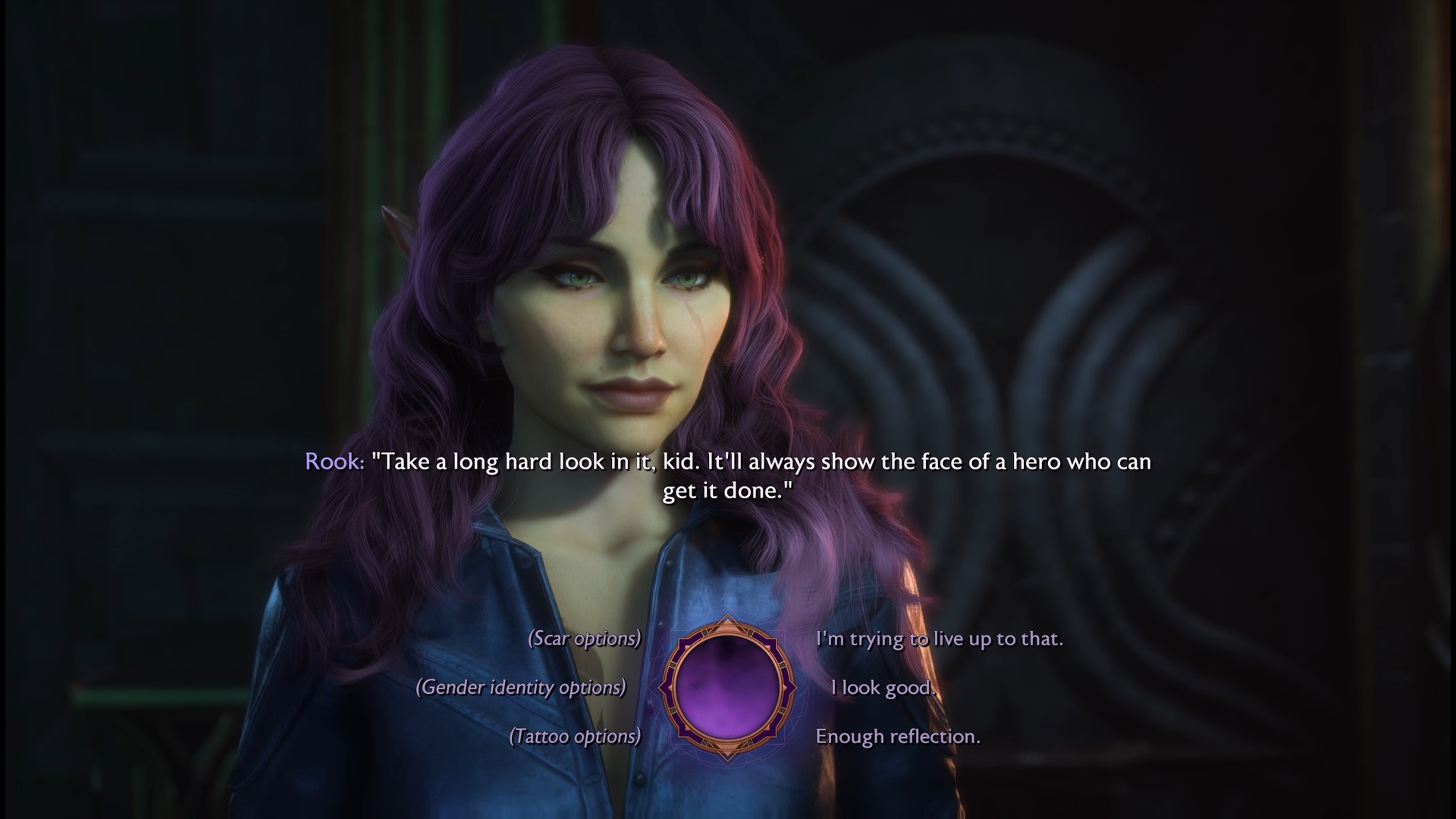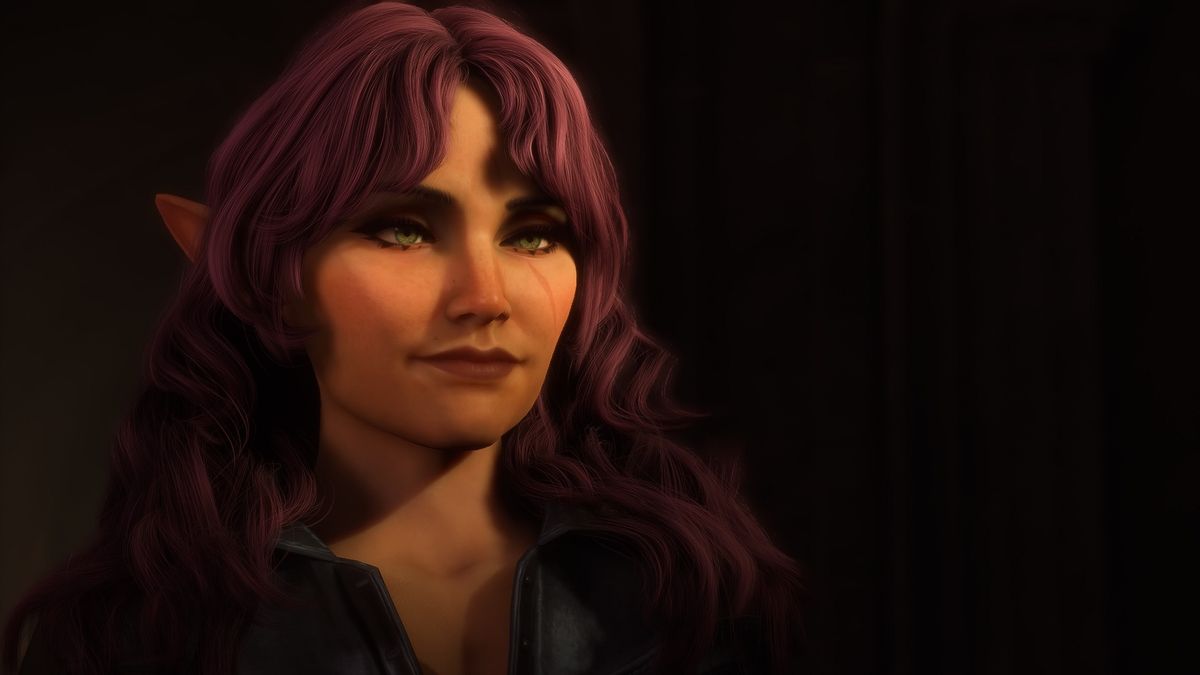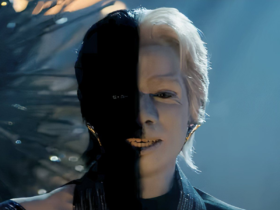I never would have thought a shaving mirror from Varric Tethras would end up being one of the most meaningful features in Dragon Age: The Veilguard, but that’s exactly what it is. As one of the mementos you set down to decorate Rook’s room in the Lighthouse, the small, silver hand mirror presents you with options relating to your character’s hopes, scars, tattoos, or gender identity. Selecting any one of them will see Rook comment on something personal. Not only can this allow you to see yourself truly reflected, but it also adds to the sense of role-play – bringing more weight to some of the physical details in the RPG’s extensive character creator. It’s a small but important touch that’s made all the more impactful because Varric is the one who gives it to you.
It speaks both to Varric’s role in The Veilguard, but also to the kind of person he is, as creative director John Epler highlights to me when we sit to chat about BioWare‘s latest RPG.
“Varric wants people to see the best version of themselves,” Epler says, “and part of the reason for that is that Varric doesn’t always see the best version of himself. So having him be the person who gives you that opportunity [through the mirror] just makes the most sense, because he is a deeply compassionate character.”
True reflections

In a moment of recollection in the Lighthouse room, you find out why Rook got the shaving mirror from Varric – which perfectly illustrates his desire to help you see the best in yourself. In response to Rook asking how they’re supposed to stop Solas, Varric gives you the memento, saying: “Take a long hard look in it, kid. It’ll always show the face of a hero who can get it done”. The sentiment of the line captures what the mirror symbolizes, as well as Varric’s role as a mentor figure who’s constantly trying to encourage you.
As Epler explains, through the simple gesture of handing you over the mirror, Varric is trying to help you find “that confidence you need to be a leader who’s pulling together the Veilguard”.
“That confidence is something Varric knows that he hasn’t always had and has seen in the previous leaders that he’s been working with,” Epler says. “Like the Inquisitor [In Dragon Age Inquisition], but also, more particularly, Hawke [In Dragon Age 2]. Hawke is a person who, to a very large degree, is kind of a mess of a human being. But they’re a mess of a human being that believes in what they’re doing, and believes in the people around them.”

“Looking in this mirror lets you see who you truly are in the most positive way possible.”
John Epler, creative director
In previous games, as Epler notes, Varric has already established himself as a supportive companion to the lead characters facing their own unique challenges. From helping Hawke find their way in Kirkwall, to offering reassurance to the Inquisitor as they set out to heal the rifts in the sky, the loveable storytelling dwarf has always been an uplifting presence. So the mirror and what it’s meant to represent as a means of reflecting your best self is very in-keeping with his personality, which Epler reinforces.
“Varric probably cares too much,” Epler says. “And that’s both his greatest strength, but also one of his biggest flaws – he gets too invested in people. He finds people too interesting and he loves people too much. But that love and that care of people is also why he makes such a great mentor, and why it makes the most sense to have him be the one to give you that mirror, and remind you that you need to see yourself as the best version of yourself every day. Looking in this mirror lets you see who you truly are in the most positive way possible.”
I love the way the mirror shines a light on Varric’s warm personality and confidence-boosting reassurance, but it’s also heartening to see an RPG include a feature that can let you see yourself truly reflected, too. I’ve already witnessed first-hand how it’s helped others feel represented and seen – particularly when it comes to gender identity. If you’d have told me a shaving mirror would make such an impression when I first stepped into Dragon Age: The Veilguard, I’d have probably had a hard time believing it, but it’s a meaningful touch that truly matters in more ways than one.












Leave a Reply